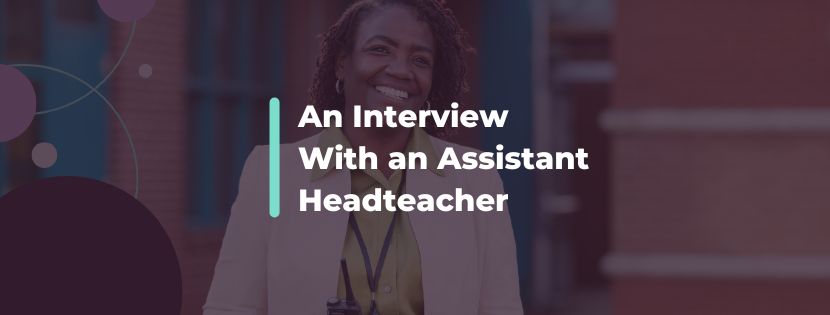Shining Light on Deaf Education: An Interview with a Teacher of the Deaf
25 Apr, 20241-2 minutes
In this blog, you will learn:
- About the importance of raising awareness for Deaf Awareness Week.
- About the life and career of a Specialist Teacher of the Deaf.
- Where the latest SEND Teaching jobs are and how to apply for them.
Deaf Awareness Week is a time to spotlight the work of those in the education sector that provide support to deaf children and young people with Auditory Processing Disorder (APD). According to the National Deaf Children’s Society survey, there are around 33,000 deaf children in schools across England, and many of them are being failed by the education system.
The same survey found that one in five Teachers reported that they do not get the information they need to teach deaf children effectively. With so many challenges and obstacles for children with SEND and as part of Deaf Awareness Week, we interviewed a Teacher of the Deaf to raise awareness, promote understanding, and discuss the importance of inclusivity.
Catherine Routley is Director of Auditory Actions, an educational audiologist and a Specialist Teacher of deaf children and young people with APD. Teachers of the Deaf are qualified Teachers who have taken further training to qualify to teach children with hearing loss and provide support with their education.
With over 30 years experience working with pupils with SEND, including 10 years as Manager of the Sensory Education Service, Catherine is passionate about empowering and promoting the needs of children and young people with auditory processing difficulties.
Tell us about your career journey so far
I have worked as a Teacher of the hearing impaired for many years now and I have worked as an advisory Teacher for several local authorities. I initially trained as a Teacher of the Deaf after completing my probationary year as a class Teacher. I worked in a school for the deaf whilst undertaking additional training.
To gain greater insight in other aspects of the deaf world I also qualified as an education audiologist, a qualification which proved useful in my job as manager.
What does your role as a Specialist Teacher of the Deaf consist of?
At present I work for two education authorities. With one local authority I visit schools to ensure students with hearing loss are accessing the curriculum. I advise teachers and learning support assistants on the nature of the pupil’s hearing loss and the most advantageous system of support. The other local authority I work specifically on college transition, a much-neglected area.
How do you keep up to date with changes in the education and SEND industry?
I attend appropriate courses for a range of pupils with language acquisition difficulties. I have also been involved with pupils with APD. It is not well recognised in the UK, despite extensive work being carried out in the USA. I have found a diverse range of pupils with special needs find the strategies specified for those with APD to be especially useful.
What have you learned so far in your career?
I have learnt to be open to current ideas and to listen to pupils and staff. I’ve also learnt to be aware that technology is not always the answer to improving outcomes for pupils. It is important to remember to be tactful when visiting schools. Some class Teachers think that visiting Teachers (specialist Teachers with expertise and experience in specific disabilities and impairments) have an ‘easy ride’ compared to the difficulties facing a class practitioner.
How have things changed or progressed in the education and SEND industry?
There is an over-keen trend to place pupils in mainstream education rather than use an established resource base or, in some cases, a special school. I feel this has much to do with the expense factor. Placing a pupil with SEND in a mainstream school isn’t always helpful and doesn’t always produce the optimum results.
Using Learning Support Assistants (LSAs) can be beneficial but recently there has been a lack of training for staff, and a lack of emphasis on the importance of post 16 education which needs to be addressed.
What would you say is the most rewarding part of working with deaf children and young people with auditory processing disorder?
I think the most rewarding part about working with deaf children is working with preschoolers. Parents can be very despondent and concerned with their young child's deafness diagnosis. Unsurprisingly, parents want their young child to talk, and when they are faced with a diagnosis of severe or profound deafness, they think it is a massive obstacle that will preclude their chance of speech development.
However, it is most encouraging for parents to realise how much they can help their child. With the use of hearing aids, perhaps a cochlear implant and with the right auditory training, the young child's auditory awareness and speech can develop. It’s hard work, but the rewards are considerable.
What do you feel can be done to support the needs of pupils with SEND?
More emphasis on initial teacher training on the range of special needs. The curriculum goes at a very fast pace and so many pupils without special needs find it difficult. The need to adapt to the students is crucial.
I think the current teacher of the deaf courses should be examined critically. Personally, I think the course should comprise an overall training in special needs with additional training on hearing impaired/visually impaired pupils.
Do you have any tips or advice for someone wanting to become a Teacher or specifically a Specialist Teacher of the Deaf?
It is a good career with reasonable prospects. However, the national curriculum and the emphasis on prescriptive teaching meeting outcomes, is having a detrimental effect. There is no room for creativity, which has an adverse effect on both Teachers and their pupils.
I would also suggest that if you concentrate on a specific special need career wise i.e. hearing impairment, your prospects of career advancement are more restricted.
There is now a distinct emphasis on using sign as an alternative to speech. I would not doubt it is essential for some deaf pupils, but it should be used with a certain amount of discretion.
What can be done to raise awareness for the deaf community?
Deaf awareness is being aware of the deaf person’s needs, trying to put yourself in their place and deciding how you can help them as much as possible.
The term ‘deaf’ does not always mean that they can hear very little (profound or severely deaf), in the majority of cases, deafness impacts on their lives but there are certain easy to follow ‘rules’ which can reduce the impact of the disability.
Here are some basic tips:
- Always face a deaf person. Make eye contact and keep it while you are talking.
- Be aware of background noise. Go into a quieter area and ensure music, radio etc are turned off.
- Speak clearly, do not exaggerate words.
- Make sure only one person speaks at a time.
- If you are giving specific instructions, ask them to repeat them to ensure understanding.
- If you are changing topics in a conversation, do let them know this. Don’t assume they are able to switch from one topic easily.
There are, of course, deaf people who will find communication via speech challenging and will require the assistance of a sign language interpreter. If this is the case, always talk directly to the deaf person, not the signer.
SEND Teacher jobs
If you’re searching for your next SEND Teacher job, why not take a look at the latest teaching vacancies, or simply upload your CV to be notified when a relevant position becomes available.
Recruit SEND Teachers
As a specialist SEND recruitment agency, we support mainstream and SEND schools with their temporary, permanent and temp-perm staffing needs.
We currently work with hundreds of schools and have exclusive access to some of the best SEND Teachers and SEND Teaching Assistants in the North West.
If you’re struggling to fill a teaching vacancy, why not get in touch with one of our team to see how we can help?
- Primary schools - Jimmy Callagher
- Secondary schools - Liam Jones
- SEND schools - Jamie Heath
Share your experience
Every individual brings a unique set of experiences, thoughts, and insights to the table. We believe in giving a voice to a community of professionals to inspire positive change and champion reform in the education sector.
If you work in the education sector and would like to share your own personal and professional experiences, we’d love to hear from you. Perhaps you have a different perspective, could offer a fresh angle, or want to challenge assumptions.
Simply reach out to our Head of Content, Nicole Sherwood, to discuss a collaboration which makes your voice count.
Meet Jamie Health
Who is Spencer Clarke Group?
Established in 2017, we’re a vibrant and progressive recruitment agency based in the heart of the North West.
We continually reimagine the recruitment process to challenge convention and defy expectations; from creating a better recruitment experience to remodelling employee engagement, we thrive off doing things differently and turning heads along the way.
We operate in two sectors:
In eleven specialisms:
Healthcare, Social Care & Nursing
Corporate Functions & Business Support




